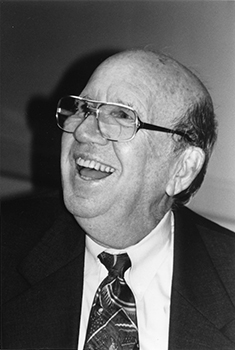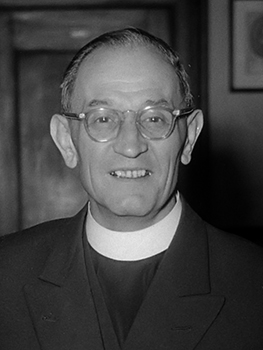From Our Archives
Debie Thomas, He Sighed (2021); Debie Thomas, Be Opened (2018); and Dan Clendenin, Reflections on Labor Day (2015).
This Week's Essay
Acts 10:34, “Now I truly understand that God doesn’t show favoritism."
For Sunday September 8, 2024
Lectionary Readings (Revised Common Lectionary, Year B)
Psalm 125 or Psalm 146
James 2:1–10, (11–13), 14–17
Mark 7:24–37
This summer marked the 100th anniversary of the birth of Will Campbell (1924–2013) on July 18. He might be one of the most provocative saints that you've never heard of. Campbell was many things to many people, but for me his greatest contribution was how he struggled mightily to incarnate the reading for this week from James 2:1,4: "As believers in our glorious Lord Jesus Christ, don't show favoritism," for in showing favoritism "have you not discriminated among yourselves and become judges with evil thoughts?"
Campbell told his story in two memoirs — Brother to a Dragonfly (1977), which was a finalist for a National Book Award, and Forty Acres and a Goat (1986). He was born and raised on a cotton farm in Amite County, Mississippi, a place known for its poverty, segregation, and lynchings. The Bibles in his family church were emblazoned with a symbol of the Ku Klux Klan. When he was seven, Campbell decided to be a preacher, and at age seventeen he was ordained by family members at East Fork Baptist Church. After serving in World War II as a combat medic, he completed studies at Yale Divinity School.
Campbell then pastored a small church in Louisiana for two years, but that "just didn't work out," he writes. Nor did his two years as Director of Religious Life at the University of Mississippi (Ole Miss), where his radical views on civil rights and racial integration led to hate mail and death threats. He resigned and took a post at the National Council of Churches. That too eventually fizzled out, but not before he participated in four iconic moments in the civil rights movement.
In 1957, Campbell was the only white person present who was invited by MLK at the founding of the Southern Christian Leadership Conference. A few months later, he was one of four people who escorted "The Little Rock Nine" group of African American students attempting to enroll in Little Rock Central High School. In 1961, he accompanied the "Freedom Riders" in their efforts to integrate interstate bus travel despite white mob violence. And in 1963, he joined Dr. King’s boycotts, sit-ins and marches in deeply segregated Birmingham, where, as his obituary in the New York Times put it, "In scenes that stunned the nation, protesters were met with snarling police dogs and high-pressure water hoses."
Campbell broadened his bona fides by protesting the Vietnam War, helping draft dodgers, opposing capital punishment and abortion, and campaigning for equal rights for women, gays, and lesbians. But bit by bit across those volatile twenty years, he sensed that something wasn't quite right. He found himself with "a call but no steeple," a sense of failure, self doubt, and "a penchant for self-destruction." He came to distrust all movements and institutions, especially the church — he once referred to television preachers as liars, frauds, and "electronic soul molesters." He dismissed all politics as impotent.
 |
|
Will Campbell.
|
He eventually regrouped on a rundown two-hundred year old farmhouse with forty acres and a goat named Jackson. There, in rural Tennessee, Campbell freelanced as one of the most irreverent Christians ever to infuriate the church. He farmed, wrote over twenty books, hosted a steady stream of troubled people both famous and unknown (Johnny Cash, Willie Nelson, Jimmy Carter, etc.), wrote country music, visited the sick and the imprisoned, and continued his curmudgeonly protest against the principalities and powers.
What had happened? Why the radical conversion? In the language of James for this week, he concluded that he had been playing favorites, and become judgmental of others. And since God does not play favorites, neither should he. "Mr. Jesus," he said, "loves the bigots, too."
As he matured, Campbell discovered how readily he hated those who hated, how easily he agitated for the oppressed but hated the oppressor. Strange, he thought, how he enjoyed thinking that God hated all the same people that he hated. He had the uneasy feeling that he had created God in his own image, and after his likeness. Through a series of encounters with unlikely "teachers," he admitted that after twenty years in ministry he had become little more than a "doctrinaire social activist." He had subverted the indiscriminate love of God for all people without conditions, limits, or exceptions into a ministry of "liberal sophistication."
Campbell then had the temerity to act upon his newfound convictions. He started sipping whiskey with the Ku Klux Klan, and became something like their unofficial chaplain who officiated at their weddings and funerals. He befriended the Grand Dragon of North Carolina, J.R. "Bob" Jones, visiting him the night before Jones was imprisoned. He visited MLK's assassin James Earl Ray in prison. There was a big difference, he realized, between being a "doctrinaire social activist" and a follower of Jesus. The key? "I came to understand the nature of tragedy. And one who understands the nature of tragedy can never take sides."
In 1976, he wryly observed, "It's been a long time since I got a hate letter from the right. Now they come from the left." Not everyone will appreciate Campbell's rapier wit, but in the year 2000, PBS profiled him in their documentary "God's Will," and President Clinton honored him with a National Endowment for the Humanities medal.
I'm not sure that I could make nice with the KKK like Will Campbell, but I think he pointed us in the right direction. He reminds me of the German Lutheran pastor Martin Niemöller (1892–1984), who started at the opposite side of the political spectrum and traveled to a similar theological destination.
 |
|
Martin Niemoeller.
|
Many people are familiar with Niemöller's famous poetic confession First They Came, but by his own admission, for much of his life, speaking out for the powerless, resisting Hitler, and defending the Jews is exactly what Niemöller did not do. He was a deeply conservative right wing nationalist. He voted for Hitler and the Nazi Party twice. Even when he was imprisoned, in 1939 he volunteered to rejoin the German military in World War II.
But in 1945 Niemöller took his beloved wife Else back to Dachau to show her the cell where he had been imprisoned. There they saw a simple plaque that read, "Here in the years 1933 to 1945, 238,756 people were cremated." Niemöller recalled that when he read the plaque "a cold shudder ran down my spine." It wasn't just the number of people murdered that haunted him, it was the dates. Dachau opened in 1933. At that time Niemöller was a free man and a prominent pastor. "My alibi accounted for the years 1937 to 1945," he said, "but God was not asking me where I had been from 1937 to 1945 but from 1933 to 1945… and for those [earlier years] I did not have an answer."
Eventually Niemöller did change, even radically so. He repudiated his ultra-nationalist and antisemitic views. He admitted his personal responsibility for not resisting more, along with the collective guilt of the entire nation for the Holocaust. Sounding like the leftwing liberal Will Campbell, he confessed that "it took me a long time to learn that God is not the enemy of my enemies. He's not even the enemy of his own enemies." In the words of the epistle James, we can't play favorites with the love of God.
Weekly Prayer
Gerard Manley Hopkins (1844–1889)
Thee, God, I come from, to Thee I go
THEE, God, I come from, to thee go,
All day long I like fountain flow
From thy hand out, swayed about
Mote-like in thy mighty glow.What I know of thee I bless,
As acknowledging thy stress
On my being and as seeing
Something of thy holiness.Once I turned from thee and hid,
Bound on what thou hadst forbid;
Sow the wind I would; I sinned:
I repent of what I did.Bad I am, but yet thy child.
Father, be thou reconciled.
Spare thou me, since I see
With thy might that thou art mild.I have life before me still
And thy purpose to fulfil;
Yea a debt to pay thee yet:
Help me, sir, and so I will.But thou bidst, and just thou art,
Me shew mercy from my heart
Towards my brother, every other
Man my mate and counterpart.
Dan Clendenin: dan@journeywithjesus.net
Image credits: (1) Mississippi Encyclopedia and (2) Wikipedia.org.





